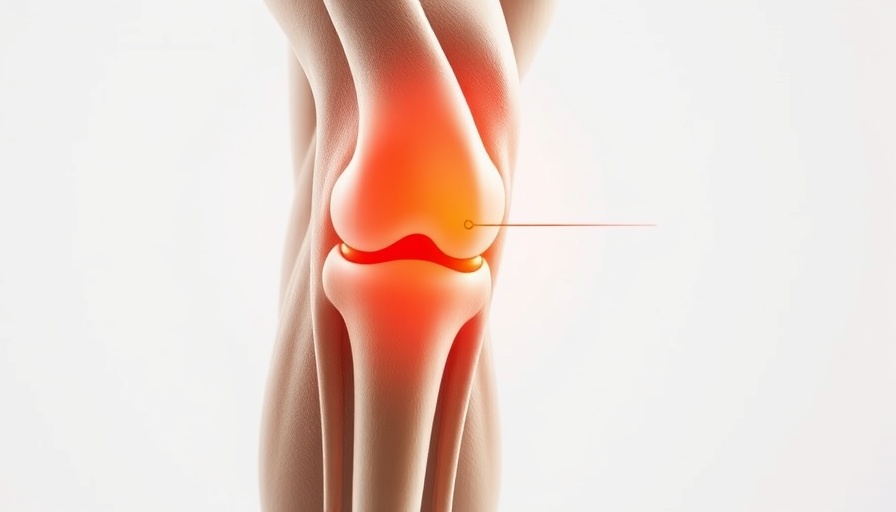
Understanding Clicking Knees: A Common Concern Among Seniors
Many of us may notice the occasional click or pop in our knees, especially as we age. As shocking as it may sound, recent studies have shown that nearly 4 out of 10 individuals experience this phenomenon known as 'klikende knieën' or clicking knees. But what causes this common occurrence, and when should it prompt a visit to your doctor?
The Causes Behind the Clicking Sound
Clicking knees can arise for various reasons, often linked to the natural aging process. As we grow older, cartilage that cushions our joints can wear down, leading to alterations in knee structure that produce those familiar clicking sounds. Other factors may include gas bubbles in the joint fluid, which can create a popping sound when they burst, or ligaments and tendons moving in and out of place. In many cases, these sounds are harmless, but they can indicate underlying joint issues when accompanied by other symptoms.
When to Consult a Professional
While the clicking noises themselves do not always signal a problem, there are instances when one should seek medical advice. If the clicking is accompanied by pain, swelling, or instability, it could indicate conditions such as osteoarthritis or patellar tendinitis, requiring a thorough examination and possible treatment. Additionally, if the sound develops suddenly with no apparent cause, it is wise to consult a healthcare professional to rule out any serious injuries, such as ligament tears.
Impacts of Joint Health on Overall Well-being
Knee health is more than just avoiding annoying sounds; it plays a critical role in maintaining an active and fulfilling lifestyle. For seniors, keeping joints healthy can mean the difference between enjoying daily activities or facing limitations. Engaging in low-impact exercises such as swimming or cycling can enhance knee strength while reducing impacting forces that contribute to deterioration.
Practical Tips for Joint Care
Maintaining joint health is essential for fostering an enjoyable life as we age. Here are a few practical tips:
- Stay Active: Aim to engage in physical activity daily, ensuring you include strength-building and flexibility exercises to support your knees.
- Nutrition Matters: Follow a balanced diet rich in anti-inflammatory foods like leafy greens, nuts, and fatty fish, which can aid joint health.
- Listen to Your Body: Never ignore persistent pain or discomfort; it's a signal from your body that something may need attention.
The Emotional Side of Health Concerns
It's normal to feel anxious when faced with health issues, especially as we grow older. The apprehension surrounding knee problems can lead to fears about mobility and independence. It's essential to address these concerns openly, either by discussing them with a health professional or by sharing feelings with family and friends. Remember, seeking help not only alleviates worries but also promotes proactive measures toward better health.
Conclusion: Empowering Yourself Towards Healthy Knees
Understanding the reasons behind 'klikende knieën' empowers you to take charge of your knee health. Keep an eye on any changes, stay active, and focus on nurturing your body with proper nutrition. If in doubt, don't hesitate to reach out to a healthcare provider who can offer personalized advice. Protecting your knees is an investment in your overall health and happiness.
 Rij toevoegen
Rij toevoegen






Write A Comment